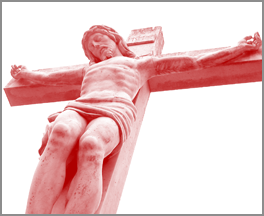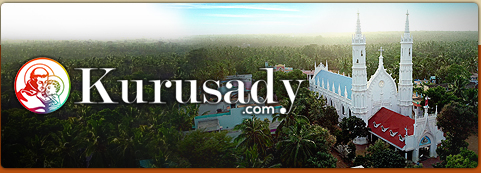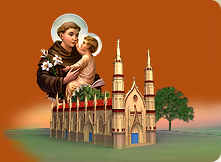| |
 |
 |
Fasting |
| |
When you’re fasting, don’t look glum like the Pharisees, pretending that it’s such a great burden to do penance.
Jesus and the apostles have much to say on the mystery of the Cross. The daily cross of which Jesus speaks is not only the final road from Pilate’s hall to Calvary. It is the whole lifer of Jesus, and the whole life of every faithful Christian, the task which God has given us to do. The Cross is the way of perfect love and total dedication. All four gospels make this clear. Suffering and sacrifice belong to the glory of Christian life, making us shares in the redeeming work of Christ.
Lent is out-dated and out of the question, because for real Penance you have to suffer agony-starvation by fasting, sleepless nights from scouring yourself, the seven-year shakes from an itchy hair-shirt. There’s so much we can do in Lent without harming our health. In fact, it will improve our health, bodily and spiritually. Laziness not contribute to good health. Lent is the time to improve our style of love, and beautify ourselves by doing it. A beautiful soul shines through outward actions.
Lord Jesus, teach us the true spirit of Lent. The sprit of fasting, which is the spirit of giving up whatever is not of You. And the spirit of celebration, which is the ability to rejoice heartily in Your presence among us.
|
|
 |
The Last Supper |
| |
As Jesus sat down to the “last supper” table, Jesus said to His friends, “I have greatly desired to eat this Passover with you”. What was that great desire of Jesus? What desires of Jesus did the institution of the Holy Eucharist fulfill?
St. Thomas Aquinas says, if we examine the words of Jesus in the Gospels, at least six purposes or desires of Jesus appear:
- Then he took loaf of bread, and then he had given thanks, He broke it and gave it to them, saying, "This is My body which is given for you. Do this in remembrance of Me." Luke 22:19
- Jesus said to them “I am the bread of life. Whoever comes to me will never be hungry, and whoever believes in me will never be thirsty”. John 6:35
- While they were eating, Jesus took loaf of bread, and after blessing if he broke it, and gave it to the disciples, and said, "Take, eat; this is My body." Then he took a cup, and after giving thanks, He gave it to them, saying, "Drink from it, all of you; Matthew 26:26-27
- “Those who eat My flesh and drink My blood abide in Me, and I in him.” John 6:56
- “I am the living bread that came down from heaven; whoever eats of this bread, will live forever; and the bread that I will give for the life of the world is My flesh." John 6:51
- "Those who eat My flesh and drink My blood have eternal life, and I will raise them up on the last day". John 6:54
So the Eucharist, the bread of Life, is the Church’s way of continuing what Jesus began at the last supper.
|
|
 |
Good Friday |
| |
 Good Friday is the day on which Jesus Christ was crucified. The theme of Good Friday’s liturgy is liberation. We are free because of Christ’s love for us. If we do not deeply understand that His sacrifice brings us the great gift of freedom. Good Friday is the day on which Jesus Christ was crucified. The theme of Good Friday’s liturgy is liberation. We are free because of Christ’s love for us. If we do not deeply understand that His sacrifice brings us the great gift of freedom.
We are free now to make our lives worthwhile, eternally glorious because of Christ’s surrender to the cross. We are free now because our love and our good works have a life long meaning and an eternal day of fulfillment. We are no longer slaves to human limitations and the death as the gloomy end of all.
Every word and gesture of the Good Friday liturgy celebrates mankind’s liberation. The atmosphere of sorrow is grief over our failure to yield ourselves to the new freedom.
Nevertheless, He has freed us. From the prophet Hosea we hear the jubilant song of liberation, “He will heal us… He will bind our wounds… on the third day he will raise us up, to live in His presence”
|
|
|
|

